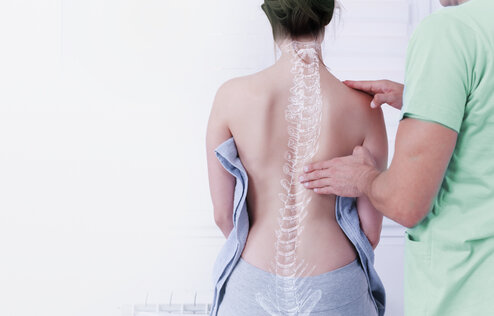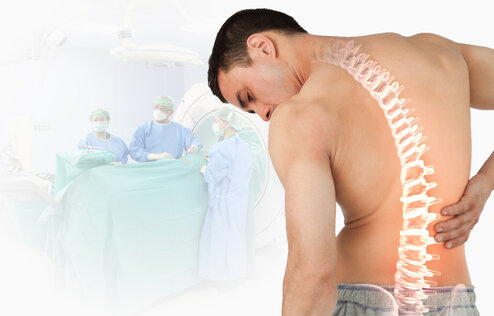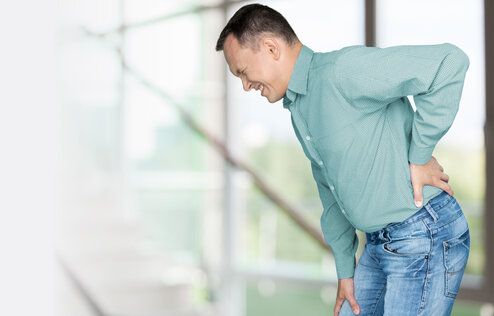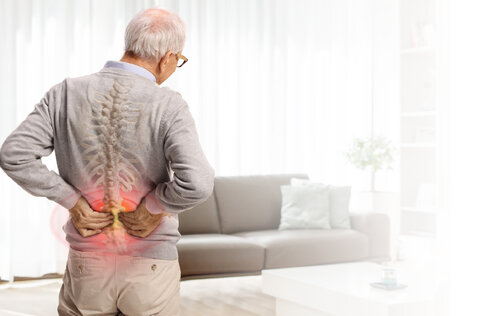Do not ignore "back pain" it may be a warning sign of disease.
Center : Spine Center
Article by : Dr. Sittipong Suttiudom
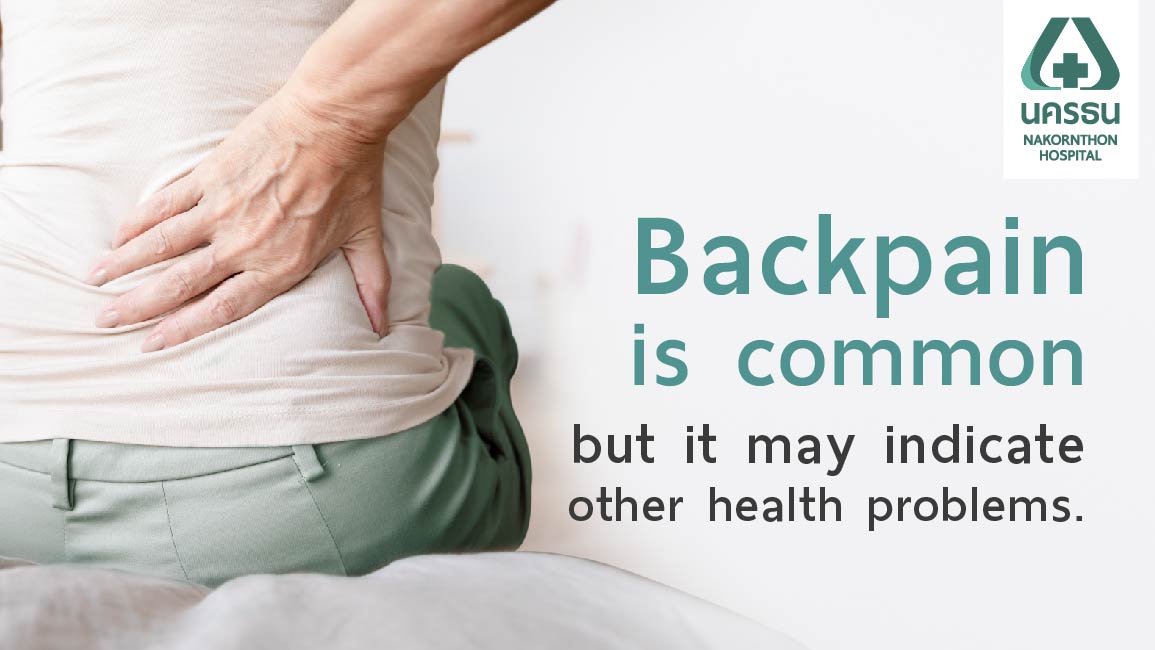
When there is back pain many people choose to ignore this or just take pain medication to relieve symptoms. If the pain is just an inflamed muscle or back pain would not have any serious consequences, but if at any time there is back pain spreading down to the leg or pain in other areas, probably it's not just ordinary back pain. Because each type of back pain can be a warning sign indicating disorders of the body or other diseases.
Back pain
It is the most common pain in everyday life after neck pain. This is common in working age and the elderly, the common cause is improper stance or posture, such as sitting and working in a bent back for long periods, heavy lifting, and stress can result in the tightening of the back muscles. Internal organ diseases, etc. Most of the patients 80-90% will recover on their own in 4-8 weeks, so the correct treatment will reduce back pain.
What kind of back pain What diseases can indicate
- Wide back pain Can not bend or bend the back. - Acute postural muscle disease.
The disease is not directly related to the spine. But is in the back muscles especially. Mainly because the back muscles are overused, or caused by an accident, rugged sports causing acute muscle inflammation. The symptoms found are back pain, back stiffness, back stiffness, and having to bend your back all the time. Feeling a wide-ranging pain in the back. The location cannot be identified including symptoms like a herniated disc but no leg pain. - Back pain radiating to the leg, coughing or sneezing will increase the pain.
A herniated disc is caused by the intervertebral disc to slip or rupture, it exerts pressure on the spinal cord or the nerve root. This is mainly caused by tilting, lifting heavy objects, working in the same sitting position for a long time. And rarely change his posture, which is considered an office syndrome. Patients will have severe back pain symptoms. The pain was so severe that it is impossible to move. Back pain spreading to the legs, pain when coughing, sneezing, as well as other symptoms such as numbness in the legs, unusual symptoms in urination and defecation, problems in walking such as poor balance, difficulty walking, stiff legs, etc. - Sharp back pain in the joints, deep pain, hypersensitivity - degenerative spinal disease.
It is often found in the elderly. Especially people in the risk group, for example, women aged 40 years and over. Degenerative spinal disease is a condition in which the spine collapses from the facet joint, which connects the upper and lower bones, causing the movement to deteriorate as a result. The upper and lower joints are too close together. If it is in the early stages, often there are no symptoms. But if at any time the joints deteriorate so much that the spine collapses even more. There will be back pain when pressing directly on the spine, you will feel deep pain, tingling pain, and discomfort in the joints, able to identify the location, the back is stiff, can bend to a lesser extent. Sometimes the muscles freeze after spasms. Leading to pain after muscle inflammation. - Lower back pain pain in your hips, buttocks, thighs - Spinal discomfort
The disease of the spine is a condition in which one of the vertebrae is shifted forward more than normal It is often found in people aged 50 years and over, caused by degenerative spinal joints. Accident where there is a direct impact on the spine causing the joint to dislodge. Pregnant women, Fat belly person, and people who work regularly need to be slanted down and may be caused by spinal infections such as backbone tuberculosis, etc. with lower back pain. Extreme pain when standing or walking people with a large displacement of the spine will have pain in the hips, buttocks, thighs, but if the bone moves to the nerves, the legs are numb and weak. - Back pain above the waist on both sides - Kidney disease, gallstones.
Diseases caused by internal disorders such as kidney disease, gallstones Bladder stones or infection in the urinary system, etc., until causing back pain in the area above the lumbar, both sides together with the symptoms of turbid urination, fever, also, gastrointestinal disease, uterus, ovaries, it causes back pain in this area, together with but these diseases are often accompanied by abdominal pain.
If you have any of the symptoms mentioned above and the back pain is getting worse, until it affects your daily life, or fall asleep and wake up due to the back pain to take pain relievers every night for a period of more than 2-3 weeks. Don't ignore these symptoms and consult a doctor to perform a detailed examination to find the root cause and fix the problem.
Online Consultation
Article of Spine Center

